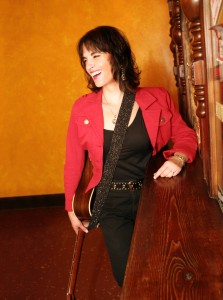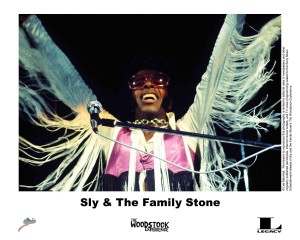Concert rave: Julie Clark
October 18th, 2009One of the challenges for musicians who like to draw from their own lives for material is writing songs that share personal details but still convey universal emotions. Julie Clark is a master of that tricky art.
is a master of that tricky art.
Her second CD of acoustic pop, “Change Your Mind,” is one of the year’s best, and as I learned at her concert last night at the Art House in Provincetown, she’s just as good delivering her songs in person as she is on CD. Right from the start, Clark demonstrated a type of low-key self-assurance that can be summed up in one word: charisma.
Perhaps Clark got a big boost of confidence when one of her new songs, “Courage of Our Convictions,” was chosen as the theme song for the National Equality March a week ago in Washington, D.C. She’s also overcome some major self-esteem issues, something she addresses in “If It Weren’t for That” and “Change Your Mind” (“Did you know I used to be twice the size I am currently?” goes one line). It all adds to a confidence that allows her to deliver songs with inspirational lyrics without becoming sappy or preaching.
Clark opened the show with a pair of covers. She kicked things off with Julie Miller’s “I Need You,” which had a swampy folk sound, thanks to some slide guitar by Larry Berwald, who played a key supporting role in the show. Next up was Kasey Chambers’ “A Million Tears.” Released on her 2002 CD, “Barricades & Brickwalls,” it’s one of my favorite songs of the decade, yet it took me a solid minute to recognize it, because Clark’s voice is so different from Chambers’ (Clark’s voice at times recalls Alanis Morisette’s or Kris Delmhorst’s).
Most of the other 10 songs were Clark’s originals, including “Dangerous,” which addresses an attraction to someone you know is bad news, and “Your Wings” (“I’ve written two songs about my mom, and this is the one she likes,” said Clark). One of the highlights was “Growin’ Up,” in which she tells about the ups and downs of growing up with an older brother. It’s a prime example of how the specifics might not match everyone’s experience, but the feelings she conveys certainly do.
Based in Norfolk, Va., Clark is building a solid reputation, winning, among other things, a first place award in the Great American Song Contest and the award for best audience response at the Cornucopia Music Festival. Based on last night’s performance, I’d expect she’ll be winning plenty more awards in the future.

